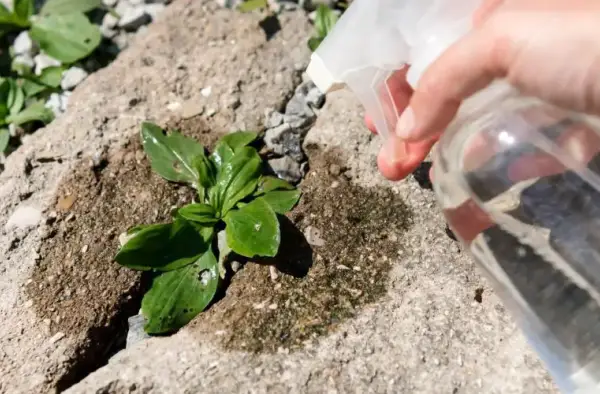Gardeners know the frustration of having their plants damaged by snails and slugs, which can quickly become a nightmare as they devour leaves and crops. Fortunately, there are eco-friendly and effective ways to repel these pests without resorting to harmful chemicals. One surprising solution is to use an everyday item that most people throw away: metal bottle caps. In this article, we’ll look at how you can turn these discarded items into a powerful barrier against slugs and snails.
Why protect your garden from snails and slugs?
Damage caused by snails and slugs
If you’ve noticed holes in your plant leaves or signs of significant damage, the culprits are likely snails and slugs. These mollusks feed on tender foliage, which can quickly destroy your crops, especially in vegetable gardens. Young plants, seedlings and leafy vegetables are especially vulnerable to their voracious appetites.
Preserving the balance of the ecosystem
While it may be tempting to resort to chemical solutions, overusing pesticides can harm the environment and disrupt the balance of your garden’s ecosystem. Chemicals can also have a negative impact on beneficial insects, birds, and other wildlife. By choosing natural methods to control pests like slugs and snails, you can help maintain this delicate balance while protecting your plants.
How to Use Metal Bottle Caps as Barriers
How this method works
Most people throw away metal bottle caps after use, but they can be reused to create an effective barrier against slugs and snails. The sharp texture and jagged edges of the caps are uncomfortable for mollusks, discouraging them from reaching your plants without harming them.
Setting up the barrier
To create this natural repellent, collect metal bottle caps and place them around your plants. Here is a step-by-step guide to implementing this method:
- Collect Bottle Caps: Collect enough metal bottle caps, either from your own consumption or by asking friends, family, local bars or restaurants for their extras.
- Prepare the barrier: Place the bottle caps flat-side down in a circle around the base of each plant you want to protect. Make sure the caps are securely attached, using double-sided tape if necessary, so they stay in place.
- Position them strategically: Make sure the caps are aligned well to form an effective barrier. The spikes will act as a deterrent, preventing snails and slugs from crawling in and attacking your plants.
Expand your stock of metal bottle caps
If you don’t have enough bottle caps at home, you can easily expand your collection by asking friends, family, or local businesses. Many restaurants and bars throw away hundreds of bottle caps every day, so a simple collection request can provide you with more than enough for your garden.
Additional natural barriers for snails and slugs
Diversify your protection
In addition to metal bottle caps, there are other natural materials you can use to create barriers for your garden. Here are some options:
- Crushed eggshells: Much like bottle caps, the sharp edges of crushed eggshells are annoying to slugs and snails. Scatter the shells around the base of your plants.
- Coarse Sand: Coarse sand creates a gritty surface that slugs and snails dislike, helping to keep them away from your flower beds.
- Coffee grounds: Coffee grounds are not only a deterrent, they also enrich your soil with nutrients. Simply spread the grounds around your plants to protect them.
Strengthen your garden’s defense against pests
Use of repellent plants
Some plants act as natural snail and slug repellents due to their strong odor. You can plant them strategically around your garden to help keep the pests away. Here are some effective plants:
- Ferns
- Rosemary
- Mint
The powerful aromas of these plants discourage mollusks from approaching your most vulnerable crops.
Maintaining garden hygiene
Keeping your garden clean and well maintained can go a long way to reducing the presence of snails and slugs. These pests thrive in damp, sheltered environments, so regular garden maintenance is essential.
- Remove plant debris: Dead leaves, overgrown weeds and other organic debris provide ideal hiding places for slugs and snails. Regular cleaning of these areas will reduce their habitat.
- Limit watering: Overwatering creates humid conditions that attract mollusks. Water your plants strategically, early in the morning, to give the soil time to dry before nightfall.
- Use natural traps: Another natural method is to set traps for snails and slugs. You can place shallow containers filled with beer around your garden. The smell attracts the slugs and once they fall into it, they can’t escape.
Summary: A sustainable and natural approach
Using natural and recycled materials, like metal bottle caps, not only helps protect your garden, but also supports environmentally friendly practices. By reusing everyday items that would normally be thrown away, you reduce waste while effectively preserving the health of your plants. This method offers an affordable and easy-to-implement solution for any gardener.
Additionally, combining natural barriers such as bottle caps, eggshells and coffee grounds, along with companion planting and proper garden maintenance, provide a holistic approach to slug and snail control. These eco-friendly solutions allow you to care for your plants without resorting to harmful chemicals that could damage your garden’s ecosystem.
By adopting these practices, you’ll transform your garden into a pest-free haven where plants can thrive. So next time you open a bottle, think twice before throwing away the cork: you may hold the key to protecting your plants from pesky intruders.



